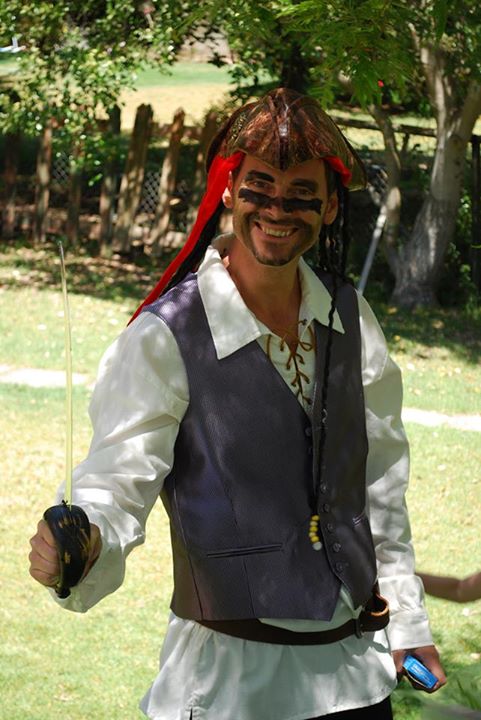David’s primary research interests lie in the formation and evolution of solar-type and low-mass stars. Establishing stellar ages (using isochrones, lithium and gyrochonology), he measures observable physical properties of stars (e.g., X-rays, Halpha, lithium abundances) in order to study fundamental physical processes governing their lives (e.g., convention, angular momentum loss).
His primary roles in DES are to assist with observing, especially with the training new observers, as well as maintaining the flat-field and spectrophotometric calibration system (DECal). On every cloudy night, he operates the DECal calibration system to perform response function filter scans of the DECam filter set. He’s also interested in the Education and Public Outreach group activities, and teaching the public about some of the wonderful science we are able to achieve with this amazing camera.
We asked David a few more questions – here’s what he had to say:
What is your favorite part about being a scientist?
Having the privilege of being able to discover new and exciting new phenomena in the Universe, and having the opportunities to share that excitement with my children.
When did you know you wanted to be a scientist?
When I was seven years old, I told mother that I wanted to be an astronomer.
Living in Wales, the skies are (or at least, were) very dark, especially in winter, and I wondered why the stars were so clear, so bright, and so many different colours. For the longest time, I never understood why I could see the Milky Way with so many stars, and yet there were stars all over the sky.
In the dead of winter, with the Sun setting early, I spent many hours after primary school walking along the sea-shore staring at the sky waiting for my mother to finish work. I wanted to know why there were craters and mountains on the Moon, and why Andromeda looked so fuzzy compared to the stars. I wanted to know why I saw Orion in winter, but not in summer. So many questions, and a passion to know the why and how of the sky.
What motivates / inspires you?
My four children inspire me with their wonder and fantastically clear thinking. Benjamin, my 6-year old, asked me a while back, if humming birds could fly slowly backwards in the same way helicopters do – how can you not be inspired by that ? My children see the natural world around them as their playground, and have an amazing inner joy at new discoveries.
My professional motivation is based on my 7-yr old self. I want to be able to understand the Universe and find out why things are the way they are in the stars. Being a staff astronomer at a national astronomical observatory, I fundamentally believe in providing excellent service to our visitors, enabling them to produce the kind of science that I’ve always dreamed of.
Do you have any hobbies or play any sports?
In my younger years, I used to play field hockey, squash and badminton competitively, but while the legs have long, long gone, I still enjoy playing squash and football from time to time.
I’m a bit of an obsessed fan of Manchester United, and have supported them since 1980 — I’ve seen them play live quite a few times, but that doesn’t happen too much in Chile these days !
I like reading classical literature, and am quite a Dickens fan. I’m a bit of a linguaphile, and only speak French to my children.
What is your favorite book, movie, and/or TV show?
- Movie — hands down — Star Wars IV: A New Hope.
- Book — A Tale of Two Cities (Dickens), although the Count of Monte Cristo (Dumas) is a close second.
- TV show — In Living Color (okay, showing my age).
If you weren’t a scientist, what would your dream job be?
Paleontologist.
What is your secret talent?
Umm, not really a secret if I tell you, is it?
Do you have kids? Do they want to be scientists too?
Ooh yes — four very noisy, energetic ones.
Umm, Benjamin (6yrs) wants to be a paleontologist or perhaps a fireman.
Charlotte (4yrs) wants to be a geologist, or perhaps a princess (or a princess geologist actually).
Tennessee (2yrs) wants to operate an excavator, or anything mechanical.
Beaumaris (5-mnths) wants to be in his mother’s arms.
What do you think has been the most exciting advance in physics / astronomy in the last 10 years?
In astronomy at least, the Kepler mission has been quite stunning in showing us the ubiquity of exoplanetary systems.
Any advice for aspiring scientists?
Be honest, never take short cuts. Treat everyone the same, irrespective of who they are or what they look like. Be gracious with non-scientists and the public, but do not suffer fools.
